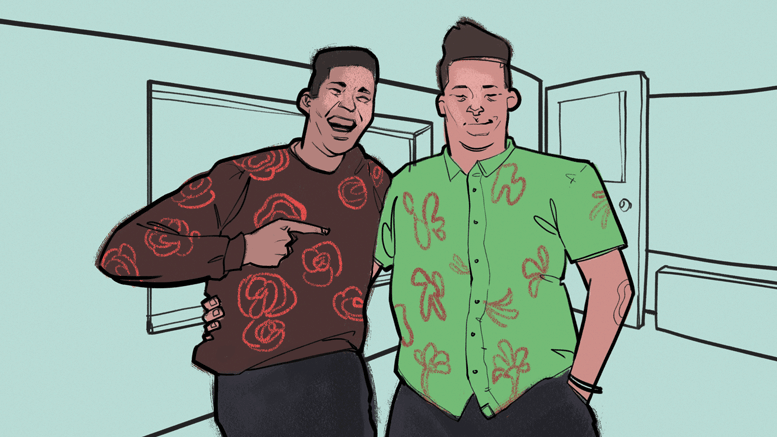This week, Ryan vented about Canadian players in the NHL and how integral they’ve been on certain Stanley Cup-winning teams, while Mike provided his two cents on what he feels is the main difference between professional media compared to student journalists.
Canada and the Stanley Cup
Recently, Prime Minister Justin Trudeau paid a visit to the White House to discuss politics and the like with U.S. President Barack Obama. When addressing the media, Obama decided to take a jab at Trudeau and Canada as a whole by saying that the Stanley Cup was in his hometown of Chicago and not Canada. Somehow that is supposed to mean that Americans are better at hockey than Canadians.
Trudeau rightfully made a jab back, saying that Canada gifted the Blackhawks with Jonathan Toews, Duncan Keith, and Patrick Sharp – who, by the way, Mr. Prime Minister, is with the Dallas Stars now.
Who cares if a Canadian team hasn’t won the Stanley Cup since Montreal in 1993? Why does that matter? Canadians make up the majority of the NHL, and a little-known fact is that each player gets to take the Cup home with them for at least a day when their team wins. So it doesn’t matter if an American team wins, since Canadians will be taking it home with them regardless.
This topic has been of particular importance to many Canadians lately, because not a single Canadian team is in the playoffs. So instead, take a look at some of the American teams and you’ll find two Winnipeggers on the Blackhawks, for example, as well as a kid from Kenora, Ont. on the Capitals, and a guy from St. Andrews, Man. on the Red Wings. Go cheer for them and you might see the Cup this summer.
Get over yourselves, Canada, it’s not a big deal. Canadian cities don’t deserve the playoffs anymore than American ones do. Cut this superiority complex when it comes to the game of hockey.
Professional media vs. student media
As my time with the Manitoban comes to a close, I sit in reflection, reminiscing on the tremendous three years I’ve been able to have with the paper. There is a ton of amazing memories I can think of, but there is also one that sticks out as a negative – that being an article I wrote at the end of last year entitled “Lead by example,” which detailed verbal harassment complaints from a few players on the women’s volleyball team in 2014-15 against their coach, Ken Bentley.
The reason I state this as a negative is that the athlete who originally came forward to my reporter at the time had to do so anonymously out of fear of being discovered.
As a student who’s around the same age as these athletes, my mindset is different when I run through the possibility of saying something negative about Bison sports.
First, I hold the well-being of my peer at stake – someone whose shoes I could easily put myself into, being a similar age, and in the most recent case, someone I consider a good friend. Second, I also face the possibility of tremendous scrutiny from coaches and directors who are several decades my elder and at times, simply see me as someone that can be “swayed” from writing a negative piece, because they believe they know more about the situation at hand (which isn’t always the case).
This isn’t an issue for professional media for the most part, as they have established a reputation, and even if a negative piece comes out, it’s understood that the writer was simply doing their job.
I find it’s a lot harder to get to the heart of the matter when dealing with internal issues at the university sporting level, and it can be very frustrating when your search for the truth is compromised, simply because you’re a student who hasn’t officially “made it” yet.


